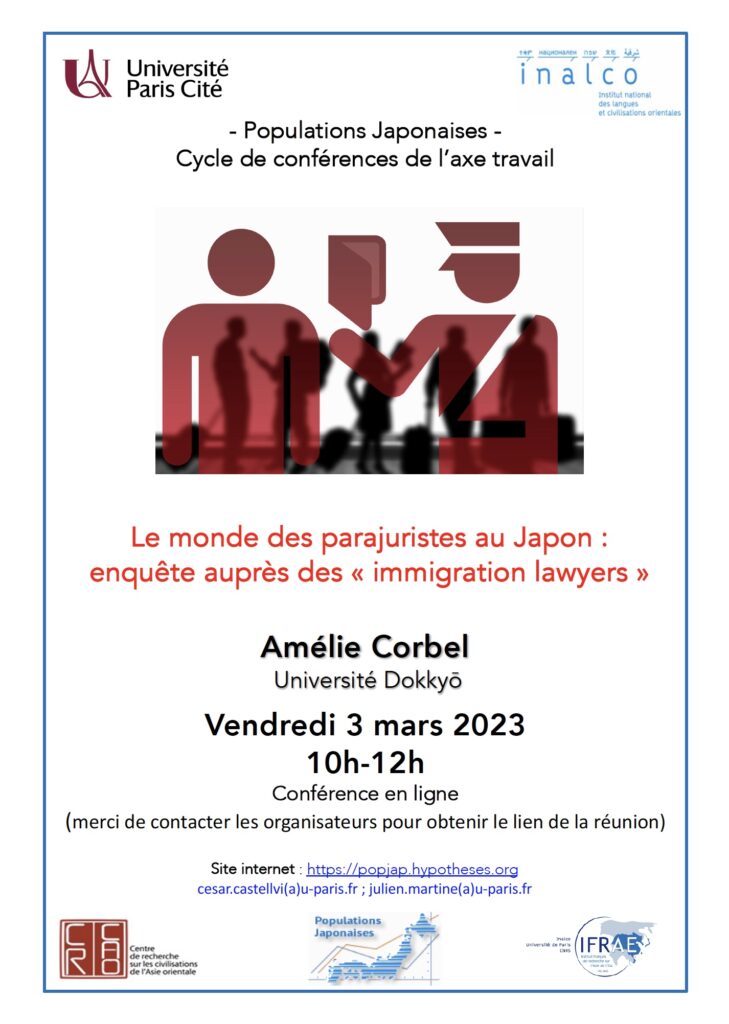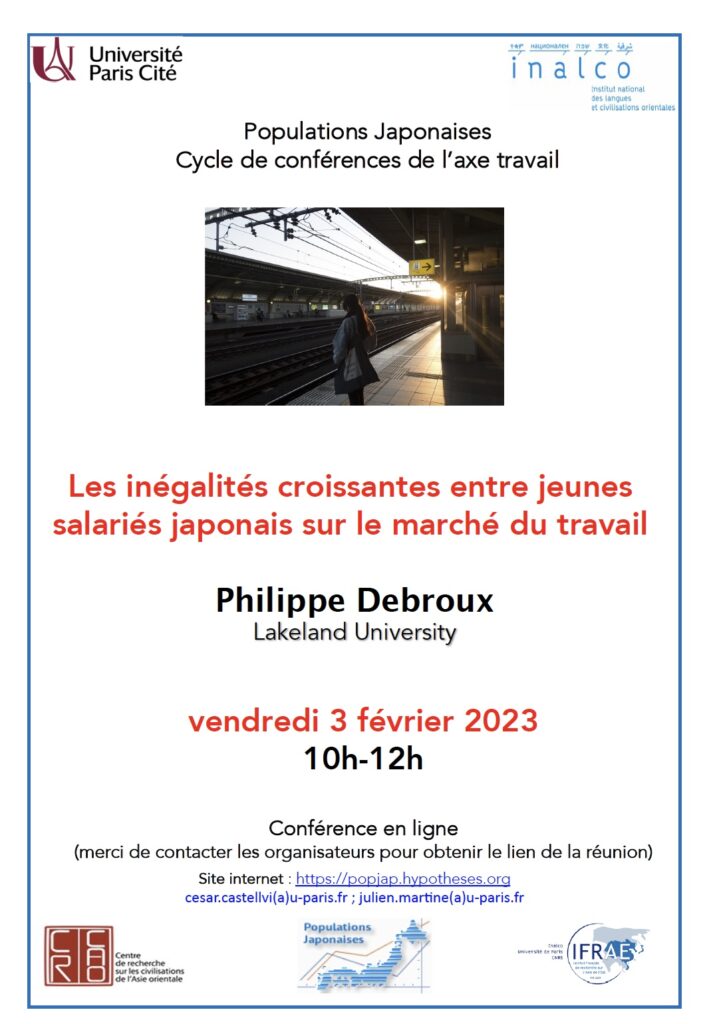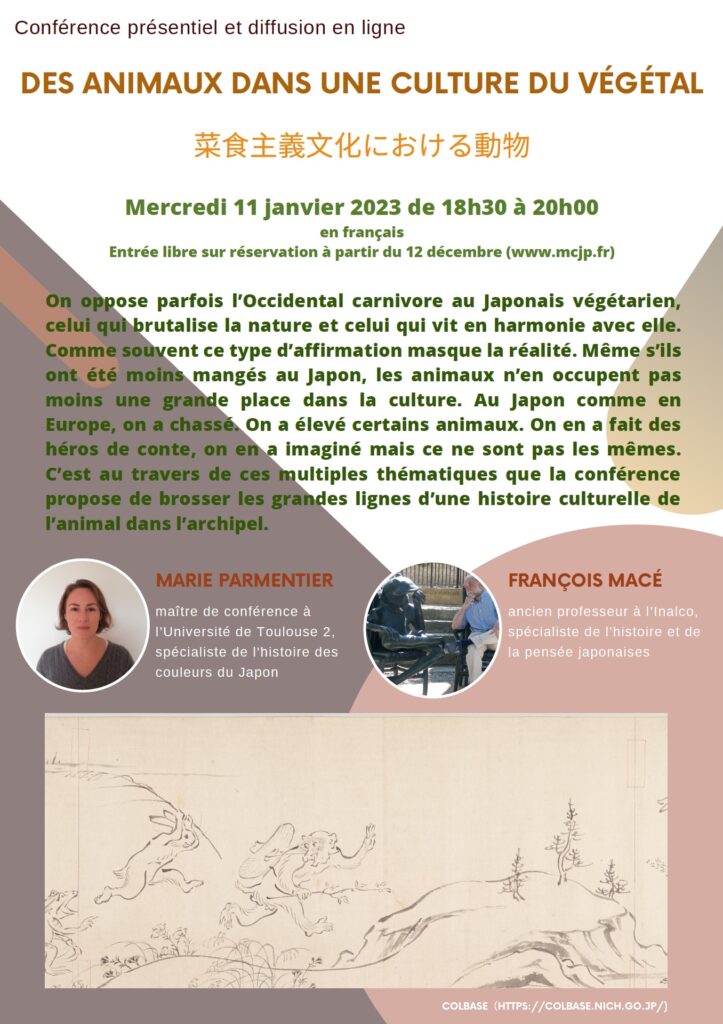La prochaine manifestation du cycle de conférences 2022-2023, organisé par l’Axe travail de l’équipe Populations japonaises (CRCAO-IFRAE), aura lieu en ligne le vendredi 3 mars de 10h à 12h (heure de Paris) avec une conférence de :
Amélie Corbel, enseignante à l’Université Dokkyō
« Le monde des parajuristes au Japon : enquête auprès des « immigration lawyers » »
Pour participer, vous pouvez vous inscrire en cliquant sur ce lien Zoom.
Profil d’Amélie Corbel
Amélie Corbel est docteure en science politique (Sciences Po Paris) et contract
lecturer (特任講師) à l’université Dokyyō. En 2021, elle a soutenu une thèse sur la
régulation de la mixité conjugale au Japon, récompensée par le prix de thèse Okamatsu
Yoshihisa 2022. Ses recherches portent sur les dynamiques de (re)production du genre
dans les politiques publiques et le droit, dans une perspective de sociologie de l’action
publique.
Résumé
Alors qu’ils représentent plus de 80% des prestataires de services juridiques au
Japon, les parajuristes sont largement délaissés par la recherche en sociologie du droit, au
profit des seuls avocats. La présente communication s’inscrit à contre-courant de cette
tendance et propose une étude de la profession de conseillers-experts en procédure
administrative (gyôsei shoshi, ci-après CEPA), une profession parajuridique japonaise
très active dans le domaine du droit de l’immigration. Ce travail s’appuie sur des données
empiriques récoltées à l’issue d’une observation participante de plusieurs mois menée au
sein de deux bureaux de CEPA et d’une douzaine d’entretiens semi-directifs.
L’intérêt d’étudier ces acteurs parajuridiques est multiple. Cela permet tout d’abord
d’analyser les dynamiques de stratification propres au champ juridique japonais. Faire la
socio-histoire des CEPA permet ensuite de définir les contours de cette profession :
domaine de compétences, modalités d’accès à la profession, caractéristiques sociodémographiques
de ses membres, etc. Enfin, l’analyse de leurs pratiques professionnelles
– rendue possible par la réalisation d’un terrain ethnographique – permet de mettre en
évidence ce qui se joue dans leurs interactions avec les clients et la manière dont ils
investissent leur rôle d’immigration lawyer.
Organisateurs : César Castellvi et Julien Martine.



